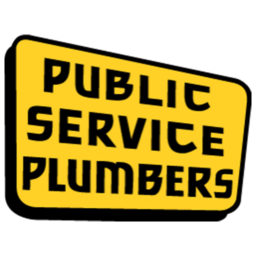You’ve heard of a water filter for your fridge, but have you ever considered a whole house water filtration system? The amount of information available about water filtration systems for your home is enough to give anyone analysis paralysis.
Luckily, at Public Service Plumbers, we are experts. We want to help you pick the perfect water filter for your Dallas home, so we’ve made a guide to help you out! Read below for our list of common water filtration systems and how to choose the one that fits your needs.
Is A Whole House Water Filter Necessary?
A whole house water filter can drastically improve the water quality in your home. Contaminants in water can cause a variety of problems for your health and safety. Some contaminants that water filtration systems can help to remove are:
- Fluoride
- Heavy Metals
- Microorganisms
- Volatile Organic Compounds (VOCs)
If you’re suspicious about what’s in your water, a water test may be in order. Luckily, you can get a water test by contacting the EPA Safe Drinking Water Hotline. Once you know what’s in your water, you’ll have a better idea of which water filtration is best for your home.
What’s The Best Water Filter For My Home?
Whole house water filtration comes in many different forms, but across the board, one aspect remains the same. Walter filtration systems for your entire home differ from simple sink attachments in that they are usually installed at the main water line where water enters your house. This means that the water enters already purified.
The difference between water filtration options comes down to efficiency. You might find that you don’t need a heavy-duty water filtration system to satisfy your needs, or you might decide that you want the best system on the market.
Carbon Based
Carbon filters are the most popular and easily affordable options on the market and will last for about 300,000 gallons before their tank needs to be replaced. Carbon-based filters purify water with a three-step system consisting of pre-filter, copper-zinc blend and activated carbon filter.
Carbon filters are great for extracting organic pollutants, heavy metals and larger particles from your water, but they aren’t quite as efficient as the next two systems.
Reverse Osmosis
Reverse osmosis filters work by removing sediment and chlorine from your water by pushing it through a semi-permeable membrane. This type of water filtration blocks contaminants from exiting the other side of the membrane, resulting in fresh, clean and purified water.
Overall, reverse osmosis whole-home filtration comes at a price though, and these systems can be rather costly to install. While more efficient than carbon-based systems, reverse osmosis filters do not remove most organic compounds and chlorine byproducts.
Next Generation
Next-generation technology whole house filters are a little more costly than traditional filters, but they are by far the most advanced. Next-generation filters boast the power to remove around 220 pollutants from your water. They work similarly to reverse osmosis filters, with some key differences.
Next-gen filters use advanced pure granule carbon filters to effectively remove organic compounds, chemicals, sulfide and chlorine. They are also smaller, produce less wastewater than other systems and don’t remove beneficial minerals from your water.
Call Public Service Plumbers To Install Your Whole House Water Filter!
As we said, choosing the right whole house filtration system can be tricky. If you still need a little help deciding which one is right for you or if you’re ready to have your system installed, call Public Service Plumbers! We have served the DFW area for half a century and our team of licensed professional plumbers is ready to help you with all of your water purification needs.
Contact us today with questions or to schedule!






